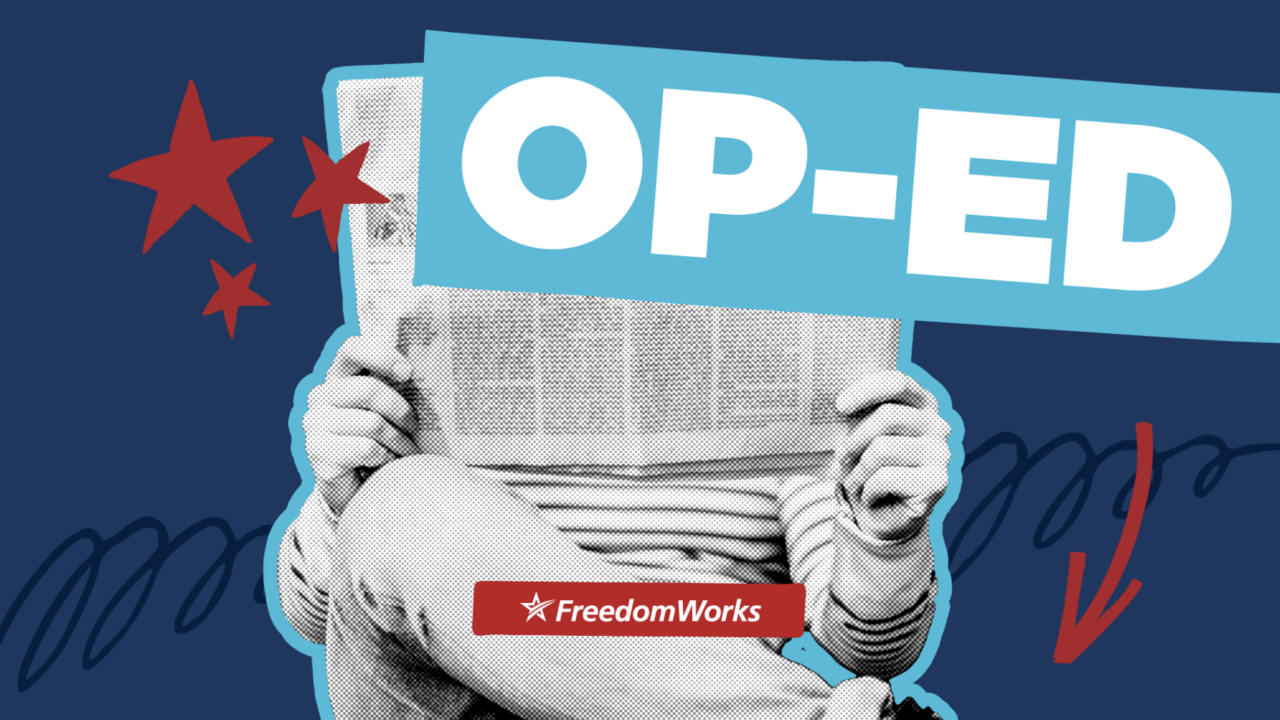There’s No Such Thing As Too Much Credit, or Unsustainable Growth

As seen in RealClearMarkets.
No one borrows money. It’s odd that something so obvious needs to be said over and over again, but no one borrows money. When we borrow we seek near-term access to resources. Think about it.
No one would borrow funds that must be paid back unless they could utilize the monies borrowed to earn back the money owed, plus a return on money borrowed. We borrow resources, plain and simple.
The simple truth about what we seek when we access “money” is a basic reminder that the amount of credit on offer is a certain consequence of production. And as production increases, so will credit. It’s a signal of what’s ahead.
As humans become even more specialized in their own work, all the while working alongside ever more sophisticated robots, production is set to soar. Credit will be abundant in the decades ahead, opposite pessimistic predictions of a high interest rate future.
Which brings us to the frequently great, but often unhappy about the economy Nicole Gelinas. Debt in particular lends her writing a dour quality. Supposedly the debt was made possible by central bankers who were “too easy.” In Gelinas’s words, “Because banks could borrow cheaply, they, in turn, lent to consumers cheaply.” This alleged instigation from the Fed fostered “unsustainable growth” in “the economy at large.”
Ok, but if any of the above were true then it would also be true that poor countries like Haiti, Peru, and Zimbabwe could do as we did. Figure that every country has a central bank, so why not just decree easy credit? “Unsustainable growth” in poor countries would be better than no growth. And if central banks can decree access to resources cheap, New York City might get to work on decreeing apartments cheap. Why not?
Of course, and as readers well know, New York City could do no such thing. Nor could central bankers make credit free or near free in Haiti. Borrowing isn’t low in the U.S. because the Fed said so as much as “money” is treated relatively well in the U.S., only for the world’s producers to view the U.S. as a good place to park their surplus.
In other words, broadly good policy stateside has been the source of the low interest rates that have Gelinas so miffed. Which is a loud signal that the Fed’s ability to control the cost of credit is much more theoretical than real. Indeed, if the Fed could actually control the cost of credit in “easy” fashion, then it would logically be scarce. Gelinas knows this well from her time in New York. It’s no reach to speculate that she’s written somewhere about the folly of rent controls in NYC. Borrowers, when they borrow, are “renting” money in order to exchange it for real goods and services. It’s a reminder that artificially low rates of interest would work as well as artificially low rental rates when it comes to fostering plenty. Meaning they wouldn’t work. Markets always speak. Because they speak, Gelinas’s assertion that the Fed’s “near zero” rates brought on enormous debt is wholly contradictory.
From there, her assertion about “unsustainable growth” born of artificially low rates is just incorrect. There’s no such thing as “unsustainable growth.” There’s economic activity, and in the U.S. the activity is a magnet for the world’s savers. Hence all the debt stateside. Is this a bad thing? Quite the opposite. In the January 13, 2023 Wall Street Journal it was reported that over 600,000 Americans will die in 2023 from cancer. A greater number will pass from heart disease. Gelinas herself wrote not too long ago about deadly traffic accidents that are a consequence of young male drivers.
All three are mentioned as a reminder that there can never, ever be too much credit. Ever. There’s so much that hasn’t been solved by the doers in our midst, including cures for the myriad cancers that kill so readily. The same can be said about heart disease and car accidents. There’s so much to fix, and the only limiting factor is matching live minds with resources.
Thankfully there’s no limit to economic growth. The more humans prosper the more resources on offer, and the more debt. It will signal progress as those who have wealth will lend it to those who need it. In short, what has Gelinas unhappy is and will be a sign that the productive are feverishly at work fixing what’s wrong.



